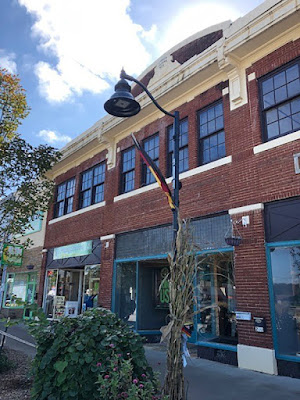Municipal representatives from around the state elected Rock Hill Councilmember Kathy Pender as the Association’s new president. In her first address in her new role, Pender thanked municipal officials for their dedicated work as the COVID-19 pandemic threatened public health and economic activity.
“I’m so proud of the leadership you all have shown in your communities during the pandemic, from supporting local businesses and restaurants with flexibility, to supporting your residents with volunteer testing and vaccination sites,” she said. “Our work this year has helped our economy and our people survive in difficult, and ever-changing circumstances. Together, we have helped our state be stronger.”
Inman Mayor and outgoing Association President Cornelius Huff noted that local elected leaders “led the way” during the pandemic, making the tough decisions required by the emergency to keep residents safe, while city staff worked hard to implement those decisions.
“It has been said that the government closest to the people is the government who governs best,” Huff said. “And if nothing else positive can be said about this horrific time in our history, it can be said that the cities and towns of this state demonstrated the truthfulness of that statement.”
Annual Meeting sessions
Community development and pandemic recovery were two of the primary themes of the 2021 Annual Meeting. The Association’s website has materials available from many of the sessions, including these:
- Hope Inspires Action: Leading Positive Community Change (audio and presentation) – Dr. Dave Ivan, a Michigan State University researcher who studies community change, discussed using the concept of hope when developing a vision for positive community change.
- Building Trust Through Open Communication (audio) – Columbia Police Chief Skip Holbrook, Williamston Police Chief Tony Taylor and Bluffton Public Information Officer Debbie Szpanka spoke in a panel discussion about planning for effective communication before a crisis and other communication considerations for building trust and protecting residents.
- Don’t Become a Headline: How to Comply with the State Ethics Act (audio) – Meghan Walker, executive director of the SC State Ethics Commission, explained ethics law compliance for elected officials.
- Keynote speaker, Andrew Davis, author, Town, Inc. (presentation) – Davis discussed how successful destination cities have “staked their claim” and leveraged the power of the online world by targeting a niche audience.
- Update on Legislative Session and Business Licensing (audio) – Municipal Association Director of Advocacy and Communications Scott Slatton reviewed action and victories during the General Assembly’s 2021 legislative session, while Deputy Executive Director Eric Budds discussed municipalities’ business license standardization efforts in 2021.
- Attracting the Remote Workforce Post-Pandemic (audio and presentation) – Jim Stritzinger, broadband coordinator for the SC Office of Regulatory Staff; Irene Dumas Tyson of the Boudreaux Group; and Jen Bonnett of the Savannah Economic Development Authority talked about how communities can draw in remote employees as residents.
- American Rescue Plan: ARP From A to Z (audio and presentation) – Clarence Anthony, CEO and executive director of the National League of Cities, Todd Glover, executive director of the Municipal Association of SC, and Erica Wright, one of the Municipal Association’s legislative and public policy advocates; outlined the specifics of the American Rescue Plan and allowable uses of its funds for cities and towns.
- Broadband Is No Longer a Luxury – It’s a Necessity (audio and presentation) – Jim Stritzinger, broadband coordinator for the SC Office of Regulatory Staff, discussed the state’s plan to expand broadband to underserved areas. In the same session, Newberry Utility Director Tim Baker and Assistant Utility Director David Eldridge talked about the City of Newberry’s work to ensure local availability of affordable high-speed internet.
- Between the Lines: Redistricting and Your Budget (audio and presentation) – Frank Rainwater, executive director of the SC Revenue and Fiscal Affairs Office, discussed the effects of the pandemic on the state’s economy and governmental revenue, as well as the redistricting process following the 2020 Census.
Achievement Awards
During each Annual Meeting, the Association recognizes superior and innovative efforts in local government with the Achievement Awards. See the videos highlighting this year’s winners, from Lowrys’ new town hall to the rehabilitated storm water pumps on Hilton Head Island.









